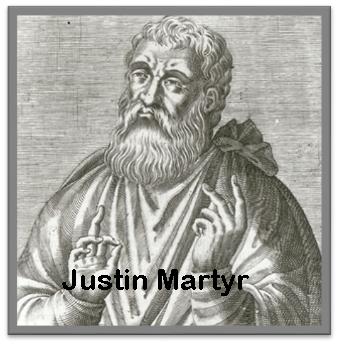Bats, Frogs, and Worms?
Bats, Frogs, and Worms?

It happened a few years ago, but I still remember that it made the news. One Saturday morning, some slogans were put on a number of churches in Leiden. These slogans dripped of hatred against the Christian faith. Phrases such as “Death to the worshippers of Christ” and “Christian invaders, wait on your death.” The police were convinced that these were not instances of vandalism, but of deliberate anti-Christian sentiment. Feelings of animosity toward the church and the Christian faith are a reality in our society. Such is the case presently, but it was also the case in the past. Just look at the first Christians.
Christians in the early church formed a minority. Yet they came out for their Saviour. They spoke the gospel and they lived according to it. Their faith spread through informal connections—between individuals, within families, or among friends and acquaintances. Christians also made their faith known by writing about it. Sometimes this led to fierce resistance. Christians professed their faith in a non-Christian environment full of prejudices and slander.
In the Roman Empire, pictures were in circulation that depicted the God of the Christians with donkey ears. He carried a book and wore a gown. During excavations in Rome, a drawing was discovered in a cave. On the wall of the cave, a person was depicted who stood in worship before the Crucified One. The figure on the cross was a man with a donkey’s head. Below was written, “Alexamenos worships his God.” The God of Christians was depicted as a crucified donkey, the symbol of stupidity and debauchery.
Backward and Foolish⤒🔗
Christians were mocked for donkey worship: “I hear that they worship the head of a donkey, that most abominable creature. What a delusion!” Christians of that time wrote about the ridicule that such images cast on them: A donkey—that fits perfectly with the backwardness of the Christian faith. It also fits with their immoral lives. After all, don’t they act like beasts in their secret meetings?
The pagan Lucian mockingly wrote about the Christian faith: “These backward people had got it into their heads to believe that they are physically and spiritually immortal and that they have eternal life.”
Or take Celsus. He called Christians stupid, uneducated fools. They have a strange kind of superstition. Their Bible is full of childish fables, sheer nonsense, gobbledygook. And Christians do not only behave like animals. They are animals: nocturnal beasts, elusive, shady beings. They are bats, frogs, a bunch of worms. And their teachers? These are in the grip of madness! Christianity is a criminal superstition. If a Christian addresses a criminal and invites him to their meeting, it is because the Christian himself is also a criminal. Christians are only a heap of wriggling worms, forming mysterious and shady communities.
People such as Lucian and Celsus criticized the Christian lifestyle. They also despised the Christians intellectually. They branded them as acultural simpletons. No sensible person could believe what these Christians believed!
Hope Loosens the Tongue←⤒🔗
How did the first Christians respond to such prejudice and criticism? They were not ashamed of their faith, even though they could count on being ridiculed. They gave an answer. They started the discussion. Their Christian hope made them speak up. Martyrs often delivered moving speeches before they entered the arena. It was their public advertising for God. But before martyrdom came life. That of Justin Martyr (AD ca. 100–162), for example.
Justin had become a Gentile Christian. A long search for the truth lay behind him. He had tried many schools of thought until, during his search, he met an old man. This man said to him, “Long before any famous thinkers were living in Greece, there were men who spoke in the power of the Spirit. They announced Christ, the Saviour of sinners.” And thus, the old man gave an answer for his Christian hope. In this way, the seeking Justin came to faith. And he started talking about it himself.
One day he was walking with a few other people. The conversation was about the only true philosophy. One of the group said to Justin, “You Christians believe a ridiculous story. You have invented a Christ, to whom you now blindly entrust your life.” How did Justin react to this? He said, “Excuse me but we don’t believe in fables! We believe in what is inspired, by no one less than by God himself, by God the Holy Spirit!” A few people started to laugh. Two left the group. To those who stayed behind, Justin asked, “Do you believe that we eat human flesh during our meals and then turn off the lights to commit the greatest debauchery? Why do you condemn our customs? What do you actually base it on?” Justin’s approach was to get closer to them. He spoke openly about the Christian faith. He looked for ways to share the message of Christ. He started a conversation about it. This triggered reactions. It also triggered fierce resistance.
After a forceful debate, Justin was accused in court and beheaded with the sword.

Speaking in Our Culture←⤒🔗
Bats, frogs, and worms? Christianity a foolish religion? As a Christian, you believe, but not in a caricature. You can count on ridicule or worse. But you should open yourself up to the world. You should advertise your Lord and Saviour. God invites us to speak to a society that no longer knows about grace. We are faced with the question: How do we present the Christian faith in a culture where God’s Word has become a foreign element? What should we do now, in the ruins of our time? How do we show that the gospel is wholesome for our society? How do we help our fellow Christians to make a positive contribution? Reformed theology faces that task. That is what keeps us busy here at our seminary. It is not enough to simply repeat words from the past. At the same time, we can learn a lot from the early Christians. They formed only a minority in their society. Yet they stood out. Not as bats, frogs, or worms. They put such caricatures aside. They proclaimed their Lord. They combined faithfulness with boldness. This combination drew attention. An unknown writer, not a Christian himself, put it this way 1800 years ago:
Christians differ from other people not by their place of residence, nor by their language or particular customs. Nowhere do you find them living in separate towns. They do not speak their own language…. In matters of food, clothing and other aspects of daily life, they follow the customs of the land. Yet they have a wonderful and unique order and way of life. They marry just like others do, but they don’t abandon their children. They share their table, but not their bed. They live in the flesh, but not according to the flesh. They live on earth, but their home is in heaven.
A Unique Identity and Lifestyle←⤒🔗
Christians have their own identity. It stands out. Our uniqueness lies in Christ. What does this require of us? Not an attitude that isolates us from the world, but one that opens us up to the world. The willingness to engage with twenty-first century people without ever denying Christ. The first Christians engaged in conversation with scholars and high-ranking people in their society. They made a powerful appeal to public opinion. Justin Martyr explained the Christian lifestyle even to the emperor:
Christians do not occupy themselves with sexual indulgence, O Emperor. What is openly practiced at your court and receives your approval, from that we distance ourselves. We also teach that it is wrong to abandon newborn babies. Experience has shown that these infants—if they continue to live—will later be sexually abused. We who used to be immersed in sexual immorality are now focused on purity. Before the coming of Christ, we hated and murdered each other and never opened our homes to those who did not belong to our ethnic group. But now we share one table. We pray for our enemies and we try to persuade, through Christian love, those who wrongly hate us.
Christians in the early church committed themselves to clearing away prejudices and misunderstandings about God. They presented the Christian religion in such a way that the distance between them and the culture did not unnecessarily grow larger, but attempted to bridge this gap as much as possible.
Openness←⤒🔗
We should not regard ourselves as despisers or avoiders of the culture. The Christian faith wants to impact scientific and social life. We have to speak with conviction and with passion, and above all we have to live accordingly.
This requires an open attitude. Here at our seminary we are working hard at such an attitude. Acquiring theological knowledge requires years of studying. God’s Word should be studied and explained clearly and in order to touch twenty-first century people. This demands a thorough training. It also demands that we sharpen the ability of discernment. For in the theological world there is a constant buzz of foolishness. For someone who follows in the steps of Christ, this becomes clear soon enough. Just as it was clear to our Saviour. Everywhere around him, he encountered the self-made “wisdom” of theologians. To Jewish wisdom, he was an annoyance. Later, Greek wisdom passed him by. For the philosophical world, the cross was great foolishness. Today there are many who have obscured the light of God in their lives. Our society needs people who aim to give concrete shape to discipleship in all of their lives. The gospel is not according to man. And yet, it is for man. There is more to life than this life only. There is more than a world that chases after money, entertainment, careers. Fortunately, in this world of the screen and of Internet, the message of the Crucified One still resounds.

No Island←⤒🔗
This message has to reach our multi-cultural society. Christians do not belong in the shadows of society. We are not shady creatures, bats, frogs, or worms. The church and university cannot act as an island in relation to society. We are not a community that isolates itself by an otherworldly language. But neither do we hold banners proclaiming hatred toward Muslims, or smash the windows of mosques. Instead, we bring things to light. We want to let the message of Christ shine in its radiance. Together we have made a conscious, positive choice for the gospel. This needs to come out into the open; in simple witness, in our way of being church and in our theologizing. Under the blessing of God, our university may contribute to this. Christian hope makes one speak. From out of the Christian hope, our university truly has something to say.
Promoting Reformed theology will require us to think and pray together. It will also require our encouragement and our willingness to invest in a good learning environment. Above all, it will require that we continue to look upward together. It is our deep wish that, in the year lying ahead, the work at our seminary will be done from that basis.

Add new comment